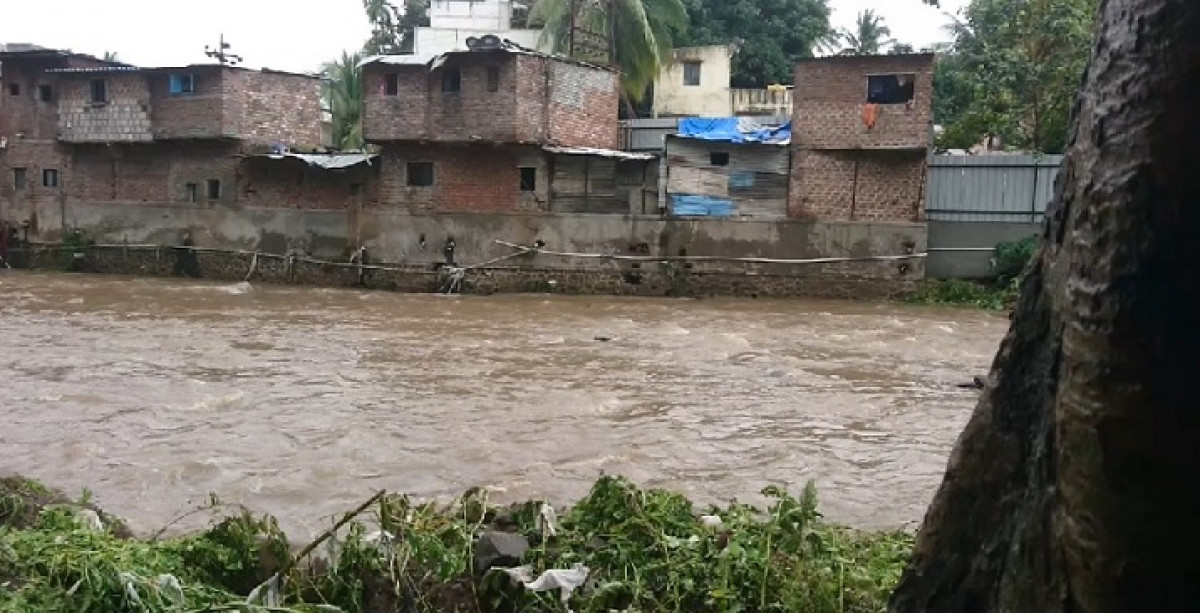Pmselves submerged in a recurring nightmare. With the onset of pre-monsoon showers, a deluge of untreated wastewater has flooded their homes once again—triggering anger, despair, and public outcry over what residents describe as years of institutional neglect by the Pune Municipal Corporation (PMC).une’s upscale Koregaon Park, residents of the marginalised Madari Wasti settlement find the
The slum, nestled beneath a railway bridge and adjacent to several affluent housing societies, has become a stark contrast to the high-rises it neighbours. Residents allege that sewage discharged from nearby gated communities flows unchecked through an undersized drainage line, ultimately seeping into their homes. With inadequate infrastructure, particularly homes built on lower ground, this influx of sewage has turned domestic spaces into pools of stagnant wastewater. A local resident explained that the issue resurfaces every monsoon without fail, highlighting that households are routinely forced to navigate ankle-deep sewage inside their bathrooms and bedrooms. “Our children fall sick every season. Cases of dengue, malaria, respiratory infections, and skin ailments have become routine,” said another local resident, who emphasised the health toll that unsanitary conditions impose on families.
The situation reached a boiling point last week when residents submitted a formal complaint to the PMC demanding immediate and lasting solutions. The letter described their living conditions as “unbearable and unsafe,” stressing the psychological and physical toll borne by women, children, and elderly residents who are the most vulnerable. In response, civic officials visited the locality on May 26 and undertook emergency cleaning of the choked drainage chambers. “We cleared the debris and blockages that had accumulated, especially due to indiscriminate garbage dumping,” stated a junior engineer from PMC’s drainage department. However, the explanation failed to convince residents who insist that this annual ritual of ‘temporary cleaning’ only serves to delay meaningful action.
Residents argue that a systemic fix is long overdue. Their primary demand is for the construction of an independent and adequately sized drainage line specifically for Madari Wasti, as the current line located at the Ghorpadi nala is severely undersized and poorly maintained. Furthermore, they have requested the widening and regular cleaning of the existing channel to prevent backflow during peak rainfall. Another resident pointed out that the drainage chambers are routinely filled with solid waste, which exacerbates the problem during the monsoon. “When our toilets back up, we are forced to use facilities in other homes. For large families, this is a daily indignity,” said one community member, underscoring the lack of sanitation access.
Beyond the public health emergency, the episode underscores a deeper issue—urban inequality. While Koregaon Park represents one of Pune’s most affluent and well-maintained neighbourhoods, Madari Wasti sits in its shadow, deprived of basic civic infrastructure. The lack of sustainable drainage and sanitation solutions not only exposes residents to waterborne diseases but also challenges the city’s aspirations of becoming an inclusive and environmentally resilient urban hub. Urban planning experts argue that this disparity illustrates the urgent need for integrated sanitation strategies that prioritise low-income communities. “Without inclusive infrastructure planning, we’ll continue to see slum dwellers disproportionately bear the brunt of civic failures. Stormwater and sewage management in informal settlements must be part of every city’s climate resilience roadmap,” said an expert on urban water systems.
The PMC has claimed that long-term plans are underway, but residents remain unconvinced. With little visible progress over the years and no timeline shared publicly, the community is threatening protests if immediate steps are not taken. The concern is not only about flooding but about the persistent failure to acknowledge the settlement’s right to clean living conditions. Pune’s urban development agenda increasingly embraces sustainability and smart city ideals. Yet, the lived experience of communities like Madari Wasti reveals a yawning gap between planning documents and ground realities. The flooding of slums due to infrastructure mismatch and civic apathy is not an isolated incident—it is a growing symptom of unchecked urban expansion without proportional infrastructure investment.
As monsoon clouds gather, the urgency of the moment cannot be overstated. Authorities must pivot from reactive to proactive governance. For Madari Wasti, a permanent drainage solution is not merely a matter of civic utility—it is a basic human right. The question confronting Pune’s administration now is not whether such issues will resurface, but whether the city is prepared to invest in equity-driven, climate-proof infrastructure for all its residents.
Also Read : PNC Infratech Completes Major Road Asset Divestment to HIT


